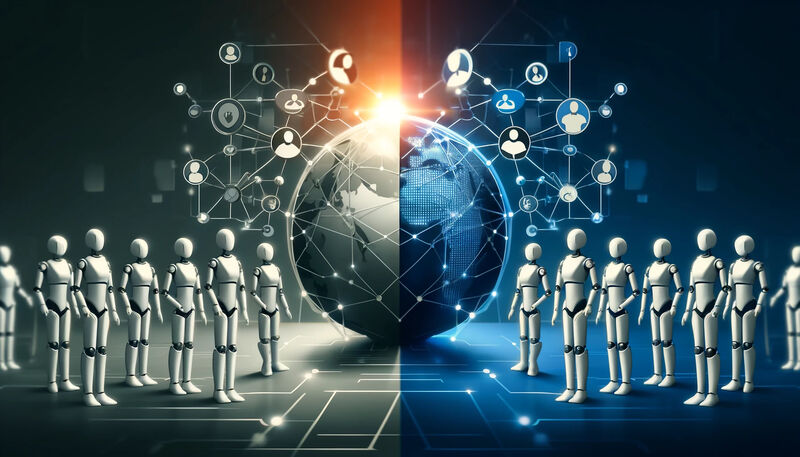The Rise of Bots: Nearly Half of Internet Traffic Now Automated, New Report Reveals

The digital landscape is shifting dramatically as a new report from cybersecurity firm Imperva reveals that humans are now sharing the internet almost equally with bots. This shift underscores growing concerns about the "dead internet theory," which suggests that a significant portion of online content is automated, and human-generated interactions are on the decline.
Key Findings from Imperva's "Bad Bot Report"
Imperva's annual "Bad Bot Report" has found that a staggering 49.6% of all internet traffic last year was generated by bots, marking a 2% increase from the previous year and the highest level recorded since the report's inception in 2013. The prevalence of bots varies significantly across countries, with Ireland experiencing a particularly high rate of 71% automated traffic.
The Role of AI in the Surge of Bot Activity
One of the primary drivers behind the increase in bot traffic is the rise of generative artificial intelligence and large language models. Companies developing these technologies frequently use bots to scrape the web and gather vast amounts of data, which are then used to train AI systems. According to Imperva, these bots are not only becoming more common but also more sophisticated, often operating from residential internet connections to appear more legitimate.
Impact on Social Media and Online Services
The proliferation of bots is having a tangible impact on social media platforms and online services. X (formerly Twitter), for example, has been particularly affected, with popular posts inundated by automated comments, many of which promote adult content. The platform's owner, Elon Musk, has responded by proposing charges for posting and interacting on the site as a strategy to curb the spread of these automated accounts.
Future Outlook and Concerns
Nanhi Singh, general manager for application security at Imperva, warns that automated bots are likely to soon surpass human-generated traffic. This shift could fundamentally alter how organizations build and secure their websites and applications. As AI-enabled tools become more integrated into our digital experiences, bots are expected to become an omnipresent feature of the internet landscape.
Broader Implications
The increasing dominance of bots raises significant concerns about the authenticity and reliability of online content. It also poses challenges for digital advertising, content moderation, and user engagement, as distinguishing between human and automated interactions becomes increasingly difficult. The phenomenon could lead to a reevaluation of how digital platforms manage and mitigate unwanted bot traffic.
As we move forward, the implications of a bot-dominated internet are profound, impacting everything from social media dynamics to the broader digital economy. The rise of bots not only challenges the integrity of online interactions but also prompts important questions about the future of the internet as we know it.

